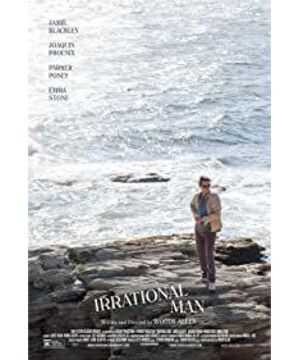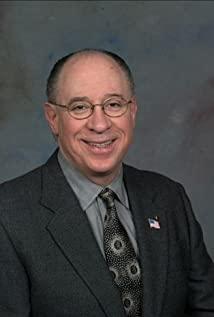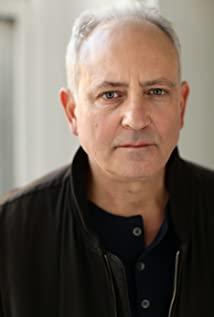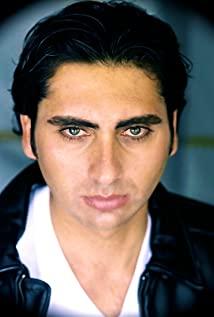Joaquin Phoenix contributed an old and unmarked performance. Allen's fans don't even want to admit it. Unconsciously, he brought a ruler with him, and looked at his light-lifting works every step of the way. In today's film industry, there are not many directors with stable standards and stable output, and no one can make jokes about the middle class and have a lot of tricks. He does all kinds of experiments in the film, putting the rich, the poor, the greedy, the sober, the stupid, the narcissistic, the impractical, the tasteful, the tasteless middle class and the upper class into the story Here, watch them pretentious, panicked, ugly, and self-indulgent. Then, in the next film, turning up the temperature and firepower of the script, turning their fantasies and concerns into drama, teasing them, and trying all the time, Allen earned word of mouth and accolades. What's more interesting is that most of the audience who applauded were the middle class he satirized.
This time, Allen's experiment theme is - irrationality.
The protagonist of the film, Abe, is a philosophy professor whose lifelong career is to spread and think about philosophy. In the first shot, he drives an old Volvo, which is exactly in line with what was written in the best-selling book "Style", an authentic middle class. Class, the driving condition of the car should be classic and simple. After a long journey, he kept taking out the jug in his pocket, and what fermented with the single malt was his nothingness. This professor, who has as much academic achievement as tidbits, is regarded as an outlier by his peers at the university where he works, and has also attracted the curiosity of married female teachers and unmarried female students. Talking about existentialism and phenomenology, he sometimes can't even find a reason to eat or party. The things around him are dull to him, and he is more willing to indulge in Heidegger's solitude, and can easily hear which is praise and which is flattering. In every hopeless morning, replace breakfast with a cup of black coffee to refresh yourself. In himself he could not find the meaning of existence that he had been studying all day long.
Until he heard the girl next door suing his lawyer in the divorce case during dinner, as if he had a mission, he encountered something that excites him, something that he has never done before and is very attractive. Thinking about his muddled experience in the past, he tried and was disappointed. Only by taking people's lives, this dialectical proposition makes him eager to try, not to mention ending the life of a mediocre villain, helping the divorced mother and child reunite, and he can punish the so-called villainous inaction of his predecessor Hannah Arendt. So, the film starts with Abe's investigation of the crime route and sneaking into the chemical laboratory to take cyanide, which is a bit more comical. It turns out that in this philosopher's view, the motive for murder can be so bright and positive, like a person who has recovered from a long illness and is eager to show value, completely unlike the dark and tangled nature of a crime movie.
Here, it seems that Alan's laughter can be heard hiding behind the microphone, making a philosophical person do an unreasonable thing, and laughing at him for falling into the dilemma of philosophical belief and survival morality. In order to speed up Abe's fall, Jill blinked her big eyes, removed her heavy makeup and scheming, and looked like a youthful and invincible schoolgirl, hopelessly obsessed with the topics Abe was talking about and those areas she had not been involved in. Obviously, Jill fell in love with the thrill of their differences.
Also in love with the excitement is Rita, a female chemistry teacher. Abe's appearance satisfies her imagination of leaving her husband. Both men and women in the film suffer from a common disease of the middle class. The basic symptoms are boredom with possession, and clinical manifestations flee into the unknown. Alan grew up in New York. Since the 1970s, he has written every glance from the sidelines into the play. The hypocrisy, cowardice, embarrassment, rush, and embarrassment of human nature have surpassed the times and become his spicy labels.
As the saying goes, put heavy things lightly.
Contrasted with the poignant irony and criticism are the gentle and delicate lines and shots, as well as the beauty of the dispelling of the characters' situations. Allen has almost never missed the character creation. In a few slightly ambiguous dates, he still talks about writers and works, theories and genres, and his experience of living overseas. His words hide mystery and become elegant words for murder. Dramatically, these points are so captivating and persuasive that they become shameless and disgusting as soon as they become the endorsement of murder. The audience can't guess what will happen in the next minute, and if they are not careful, they will fall into the plot of the formation of troops. It is fun to understand or not to understand.
Some people may say that "The Unreasonable" is Alan's slightly monotonous film, because there is no style and situation outside the daily life to stir up emotions, but it shows the coldness and straightforwardness of the film. This film opens up such a difficult problem, knowing a lot of truth but not knowing how to live, pointing the pistol to the head and touching the barrel of the gun, using orange juice and elevators as tools for murder, and finally becoming a selfish and high-IQ sinner who abandons morality. This time, the inner crisis of the sanctimonious middle class was infinitely magnified and exposed on the big screen.
-------------------------------------------------- -------------------------------------------------- --------------------------
Personal original film review public account loves to watch WeChat: aikanai
movie opens a window, we see life, and also saw myself.
Original movie reviews, independent movie recommendations.
Talk to you about the laughter, tears and heartbreak that belong to you...
View more about Irrational Man reviews











